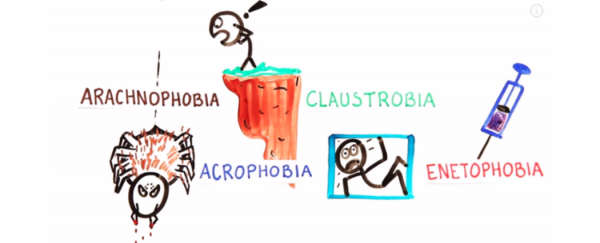If you have a phobia of, say, spiders, needles, heights, or enclosed spaces, there's a good chance you got it from your parents. Scientists suggest that the most common phobias we have today can be traced back to our prehistoric ancestors. The things that killed them most frequently continue to scare us now, even if that fear has become somewhat irrational - the chances of dying from a spider bite are incredibly slim, and unless your oxygen supply is cut off, an enclosed space isn't going to kill you.
And the fact that so many of us are scared of things that aren't actually realistic threats anymore isn't the result of our evolution being flawed. It's the result of the genes that prepare us to instinctively avoid these things becoming more common, while the genes that don't promote this fear end up fading away, says the latest episode of AsapSCIENCE.
And then there are the day-to-day experiences that also shape our fears, regardless of what happened to our ancestors, or even our parents. With so many fears, it's not the actual threat that's the problem, but our perception of the threat that makes them so scary. But could this perception be so strong, that it actually kills us? We don't want to alarm you, but the answer, says AsapSCIENCE, is yes.
It depends largely on the health of your heart. When you're scared, adrenalin is released, and the heart has to beat much faster to pump blood and oxygen into your muscles. And while, ideally, this means you're stronger and more able to combat an incoming threat, if your heart isn't up to the task, well, it just might kill you. We'll let the guys at AsapSCIENCE fill you in on all the gory details, plus they've got some tips on how to beat a crippling fear.
Source: AsapSCIENCE
